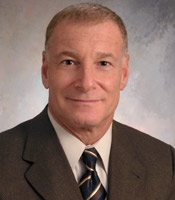
The treat is, that after substantial reductions in payment for EGD codes, CMS announced on Friday, October 31st that it was delaying revaluation of colonoscopy codes under Medicare. The agency wrote: “We agree with the commenters. In light of the substantial nature of this code revision and its relationship to the policies on moderate sedation, we are delaying revaluation of these codes until CY 2016 when we will be able to include proposals in the proposed rule for their valuation, along with consideration of policies for moderate sedation. Accordingly for CY 2015, we are maintaining the inputs for the lower gastrointestinal endoscopy codes at the CY 2014 levels.”
Although this kicks the can down the road for another year, the intense advocacy effort of ACG in collaboration with our sister GI societies (e.g., “the commenters”) pointed out the lack of transparency in CMS’ review of misvalued codes.
The trick is the recent Medicare approved payments for CologuardTM testing at $500. ACG’s guidelines recommend colonoscopy as the preferred colorectal cancer prevention strategy.
CologuardTM has a sensitivity to predict nearly 93% of cancers, but only 45% of “significant” polyps. It is an approved screening test at 3-year intervals without any data to justify the interval. In addition, there is an approximate 16% false positive rate – meaning that 16% of CologuardTM positive patients will need to undergo unnecessary colonoscopy exams. Hence, while the detection rates for cancer are closer (>95% for colonoscopy, 93% for CologuardTM), there is no comparison between colonoscopy and CologuardTM at preventing cancer.
While we all agree that “the more patients screened, the better” (including with FIT and CologuardTM), we need to continue educating the public and government about the benefits of colorectal cancer prevention and continue to increase awareness of all of the benefits of colonoscopy demonstrated by the evidence as we move towards an ambitious national goal of screening 80% of eligible U.S. adults by 2018.
Stephen B. Hanauer, MD, FACG , ACG President

